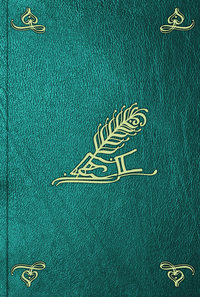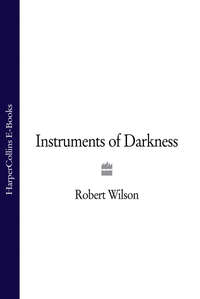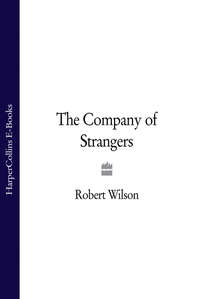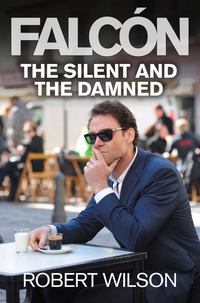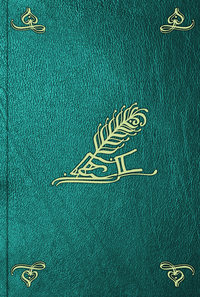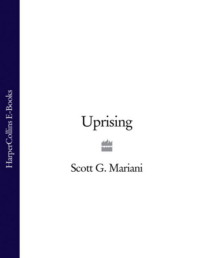
Полная версия
The Hidden Assassins
‘Why does it hurt?’
‘Can’t you ever just accept something?’ said Consuelo. ‘I love them. It hurts.’
‘We’re here to examine your inner life. I can’t feel it or see it. All I have to go on is how you express yourself.’
‘And the pulse thing?’
‘That’s what raises the questions,’ said Aguado. ‘What you say and what I feel in your blood don’t always match up.’
‘Are you telling me I don’t love my children?’
‘No, I’m asking you why you say it hurts. What is causing you the pain?’
‘Joder! It’s the fucking love that hurts, you stupid bitch,’ said Consuelo, tearing her wrist away, ripping her blabbing pulse out from under those questioning fingertips. ‘I’m sorry. I’m really sorry. That was unforgivable.’
‘Don’t be sorry,’ said Aguado. ‘This is no cocktail party.’
‘You’re telling me,’ said Consuelo. ‘Look, I’ve always been very firm about telling the truth. My children will confirm that.’
‘This is a different type of truth.’
‘There is only one truth,’ said Consuelo, with missionary zeal.
‘There’s the real truth, and the presentable truth,’ said Aguado. ‘They’re often quite close together, but for a few emotional details.’
‘You’ve got me wrong there, Doctor. I’m not like that. I’ve seen things, I’ve done things and I’ve faced up to them all.’
‘That is why you’re here.’
‘You’re calling me a liar and a coward. You’re telling me I don’t know who I am.’
‘I’m asking questions, and you’re doing your best to answer them.’
‘But you’ve just told me that what I’m saying and what you’re feeling in my pulse don’t match. Therefore, you are calling me a liar.’
‘I think we’ve had enough for today,’ said Aguado. ‘That’s a lot of ground to have covered in the first session. I’d like to see you again very soon. Is this a good time of day for you? The morning or late afternoon is probably the best time in the restaurant business.’
‘You think I’m coming back for any more of this shit?’ said Consuelo, heading for the door, swinging her bag over her shoulder. ‘Think again…blind bitch!’
She slammed the door on the way out and nearly went over on her heel in the cobbled street. She got into her car, jammed the keys into the ignition, but didn’t start the engine. She hung on to the steering wheel, as if it was the only thing that would stop her falling off the edge of her sanity. She cried. She cried until it hurt in exactly the same place as it did when she was watching her children sleeping.
Angel and Manuela were sitting out on the roof terrace in the early-morning sunshine, having breakfast. Manuela sat in a white towelling robe examining her toes. Angel blinked with irritation as he read one of his articles in the ABC.
‘They’ve cut a whole paragraph,’ said Angel. ‘Some stupid sub-editor is making my journalism look like the work of a fool.’
‘I can hear myself getting fat,’ said Manuela, barely thinking, her whole being consumed by the business that was to take place later that morning. ‘I’m going to have to spend the rest of my life in a tracksuit.’
‘I’m wasting my time,’ said Angel. ‘I’m just messing about, writing drivel for idiots. No wonder they cut it.’
‘I’m going to paint my nails,’ said Manuela. ‘What do you think? Pink or red? Or something wild to distract people from my bottom?’
‘That’s it,’ said Angel, tossing the newspaper across the terrace. ‘I’m finished with this shit.’
And that was when they heard it: a distant, but significant, boom. They looked at each other, all immediate concerns gone from their minds. Manuela couldn’t stop herself from saying the obvious.
‘What the hell was that?’
‘That,’ said Angel, getting to his feet so suddenly that the chair collapsed beneath him, ‘was a large explosion.’
‘But where?’
‘The sound came from the north.’
‘Oh shit, Angel! Shit, shit, shit, shit, shit!’
‘What?’ said Angel, expecting to see her with red nail polish all over her foot.
‘It can’t possibly have slipped your mind already,’ said Manuela. ‘We’ve been up half the night talking about it. The two properties in the Plaza Moravia—which is north of where we’re standing now.’
‘It wasn’t that close,’ said Angel. ‘That was outside the city walls.’
‘That’s the thing about journalists,’ said Manuela, ‘they’re so used to having their fingers on the pulse that they think they know everything, even how far away an explosion is.’
‘I’d have said…Oh my God. Do you think that was in the Estación de Santa Justa?’
‘That’s east,’ she said, pointing vaguely over the rooftops.
‘North is the Parliament building,’ he said, looking at his watch. ‘There won’t be anybody there at this time.’
‘Apart from a few expendable cleaners,’ said Manuela.
Angel stood in front of the TV, flicking from channel to channel, until he found Canal Sur.
‘We have some breaking news of a large explosion to the north of Seville…somewhere in the area of El Cerezo. Eyewitnesses say that an apartment block has been completely destroyed and a nearby pre-school has been badly damaged. We have no reports of the cause of the explosion or the number of casualties.’
‘El Cerezo?’ said Angel. ‘What’s in El Cerezo?’
‘Nothing,’ said Manuela. ‘Cheap apartment blocks. It’s probably a gas explosion.’
‘You’re right. It’s a residential area.’
‘Not every loud noise you hear has to be a bomb.’
‘After March 11th and the London bombings, our minds move in natural directions,’ said Angel, opening up a street map of Seville.
‘Well, you’re always wanting something to happen and now it has. You’d better find out if it was gas or terrorism. But, whatever you do, Angel, don’t give—’
‘El Cerezo is two kilometres from here,’ he said, cutting through her rising hysteria. ‘You said it yourself, it’s a cheap residential area. It’s got nothing to do with what you’re trying to sell in the Plaza Moravia.’
‘If that was a terrorist bomb, it doesn’t matter where it went off…the whole city will be nervous. One of my buyers is a foreigner making an investment. Investors react to this kind of thing. Ask me, if you like—I am one.’
‘Did the Madrid property market crash after March 11th?’ asked Angel. ‘Keep calm, Manuela. It was probably gas.’
‘The bomb could have detonated accidentally while they were preparing it,’ she said. ‘They might have blown themselves up because they realized that they were about to be raided by the police.’
‘Call Javier,’ said Angel, stroking the back of her neck. ‘He’ll know something.’
Falcón called his immediate boss, the Jefe de Brigada de Policía Judicial, Comisario Pedro Elvira, to give his initial report that the Fire Chief was almost certain this level of destruction was caused by a significant bomb, and gave the number of casualties so far.
Elvira had just come out of a meeting with his boss, Seville’s most senior policeman, the Jefe Superior de la Policía de Sevilla, Comisario Andrés Lobo, who had appointed him to lead the entire investigative operation. He also confirmed that the Magistrado Juez Decano de Sevilla had just appointed Esteban Calderón as the Juez de Instrucción in charge of directing the investigation. Three companies had been contacted to supply demolition crews to start removing the rubble and to work with rescue teams, who were already on their way, to try to find any survivors as quickly as possible.
Falcón made a number of requests: aerial photography, before the huge crime scene became too contaminated by the rescue and demolition operation. He also asked for a large police presence to cordon off nearly a square kilometre around the building, so that they could investigate every vehicle in the vicinity. If it was a bomb, it had to have been transported and the vehicle could still be there. When they started searching suspect vehicles they would also need a team of forensics and a unit from the bomb squad. Elvira confirmed everything back to him and hung up.
The Fire Chief was a man in his moment. He’d trained for this terrible day and brought the immediate calamity under control in less than ninety minutes. He accompanied Falcón to the edge of the destruction. On the way he ordered a crew of firemen to stop work on supporting the roof of the destroyed classroom so that the bomb squad could see how the explosion had affected the building. He talked Falcón through the architecture of the destroyed apartment block and how enormous the explosion must have been to blow out the four main supporting pillars for that section. The effect of that would have brought the sudden and phenomenal weight of all the reinforced concrete floors on to the skin walls between each storey. There would have been an accumulative weight and acceleration as each level fell from a greater and greater height.
‘Nobody could have survived that collapse,’ he said. ‘We’re praying for miracles here.’
‘Why are you so certain that this couldn’t have been a gas explosion?’
‘Apart from the fact that there’s been no reported leak, and we’ve only had to deal with two small fires, the mosque in the basement is in daily use. Gas is heavier than air and would accumulate at the lowest point. A large enough quantity of gas couldn’t have accumulated without anybody noticing,’ he said. ‘Added to that, the gas would have had to collect in a big enough space before exploding. Its power would be dissipated. Our main problem would have been incendiary, rather than destruction. There would have been a massive fireball, which would have scorched the whole area. There would have been burns victims. A bomb explodes from a small, confined source. It therefore has far more concentrated destructive power. Only a very large bomb, or several smaller bombs, could have taken out those reinforced concrete supporting pillars. Most of the dead and injured we’ve seen so far have been hit by flying debris and glass. All the windows in the area have been blown out. It’s all consistent with a bomb blast.’
At the edge of the destruction the light was bruised and sickly yellow. The pulverized brick and concrete formed a fine dust, which clogged the throat and nostrils with the stench of decay. From within the stacked floors came the repetitive, desperate sounds of mobile phone jingles, the same customized tunes begging to be answered. Here, rather than being an irritant, they had personality. The Fire Chief shook his head.
‘It’s the worst thing,’ he said, ‘listening to someone else’s hope fading away.’
Falcón almost jumped as his own mobile vibrated against his thigh.
‘Manuela,’ he said, walking away from the Fire Chief.
‘Are you all right, little brother?’ she asked.
‘Yes, but I’m busy.’
‘I know,’ she said. ‘Just tell me one thing. Was it a bomb?’
‘We’ve had no confirmation—’
‘I don’t want the official communiqué,’ she said. ‘I’m your sister.’
‘I don’t want Angel running off to the ABC with a quote from the Inspector Jefe at the scene.’
‘This is for my ears only.’
‘Don’t be ridiculous.’
‘Just tell me, Javier.’
‘We think it was a bomb.’
‘Fuck.’
Falcón hung up in a fury without saying goodbye. Men, women and children had died and been injured. Families had been destroyed, along with homes and possessions. But Manuela still needed to know which way the property market was going to tip.
7
Seville—Tuesday, 6th June 2006, 09.45 hrs
A figure sprinted between Falcón and the Fire Chief as he closed down his mobile. The man stumbled into the rubble at the foot of the fallen building, picked himself up and ran at the stacked pancakes of the reinforced concrete floors. His scale was strangely diminished by the vastness of the collapse. He seemed like a puppet as he dithered to the left and right, trying to find a purchase point in the tangle of cracked concrete, bristling steel rods, ruptured netting and shattered brick.
The Fire Chief shouted at him. He didn’t hear. He plunged his hands into the wreckage, swung his body up and hooked his leg over a thick steel rod, but he was a horribly human mixture of crazed strength overwhelmed by futility.
By the time they got to him he was hanging helpless, his palms already torn and bloody, his face distorted by the rawness of his pain. They lifted him off his ghastly perch, like soldiers removing a comrade from the wire of the front line. No sooner had they got him down than he recovered his strength and lunged at the building once more. Falcón had to tackle him around the legs to hold him back. They scrabbled over the rubble, like an ancient articulated insect, until Falcón managed to crawl up the man’s body and clasp his arms to his chest.
‘You can’t go in there,’ he said, his voice rasping from the dust.
The man grunted and flexed his arms against Falcón’s embrace. His mouth was wide open, his eyes stared into the mangled mess of the building and sweat beaded in fat drops on his filthy face.
‘Who do you know who is in there?’ asked Falcón.
On the back of the man’s grunting came two words—wife, daughter.
‘Which floor?’ asked the Fire Chief.
The man looked up at them blinking, as if this question demanded some complicated differential calculus.
‘Gloria,’ said the man. ‘Lourdes.’
‘But which floor?’ asked the Fire Chief.
The man’s head went limp, all fight gone. Falcón released him and rolled him on to his back.
‘Do you know anybody else in there, apart from Gloria and Lourdes?’ asked Falcón.
The man’s head listed to one side, and his dark eyes took in the damaged end of the pre-school. He sat up, got to his feet and trod robotically through the rubble and household detritus between the apartment block and the pre-school. Falcón followed. The man stood at the point where there should have been a wall. The classroom was a turmoil of broken furniture and shards of glass, and on the far wall fluttering in a breeze were children’s paintings—big suns, mad smiles, hair standing on end.
The man’s feet crunched through the glass. He tripped and fell heavily over a twisted desk, but righted himself immediately and made for the paintings. He pulled one off the wall and looked at it with the intensity of a collector judging a masterpiece. There was a tree, a sun, a high building and four people—two big, two small. In the bottom right-hand corner was a name written in an adult hand—Pedro. The man folded it carefully and put it inside his shirt.
The three men went into the main corridor of the school and out through the entrance. The local police had arrived and were trying to clear a path for the ambulance to remove the four bodies of the dead children taken from the destroyed classroom. Two of the mothers kneeling at the feet of their children gave a hysterical howl at this latest development. The third mother had already been taken away.
A woman with a thick white bandage on the side of her face, through which the blood underneath was just beginning to bloom, recognized the man.
‘Fernando,’ she said.
The man turned to her, but didn’t recognize her.
‘I’m Marta, Pedro’s teacher,’ she said.
Fernando had lost the power of speech. He took the painting out of his shirt and pointed at the smallest figure. Marta’s motor reflexes seemed to malfunction and she couldn’t swallow what was in her throat, nor articulate what was in her mind. Instead her face just caved in and she only managed to squeeze out a sound of such brutality and ugliness that it left Fernando’s chest shuddering. It was a sound uncontrolled by any civilizing influence. It was grief in its purest form, before its pain had been made less acute by time or more poignant by poetry. It was a dark, guttural, heaving clot of emotion.
Fernando was not affronted. He folded the painting up and put it back in his shirt. Falcón led him by the arm to the four small bodies. The ambulance was backing up, the rest of the crowd had been squeezed out of the scene. Two paramedics appeared with two body bags each. They worked quickly because they knew the situation would be better with those pitiful bodies removed. Falcón held Fernando around the shoulders as the paramedics uncovered each body and placed it in a body bag. He had to remind Fernando to breathe. At the third body Fernando’s knees buckled and Falcón lowered him to the ground, where he fell forward on to all fours and crawled around, like a poisoned dog looking for a place to die. One of the paramedics shouted and pointed. A TV cameraman had come around the back, through the pre-school, and was filming the bodies. He turned and ran before anybody could react.
The ambulance moved off. The ghostly crowd surged after it and gave up, with a final spasm of grief, before dissolving into groups, with the bereaved women supported from all sides. Television journalists and their cameramen tried to force their way in to talk to the women. They were rebuffed. Falcón pulled Fernando to his feet, pushed him back into the pre-school out of sight, and went to find a policeman to keep journalists away.
Outside a journalist had found a young guy in his twenties, with a couple of bloody nicks in his cheek, who’d been there when the bomb exploded. The camera was right in his face, inches away, the proximity giving the pictures their urgency.
‘…straight after it happened, I mean, the noise…you just can’t believe the loudness of that noise, it was so loud I couldn’t breathe, it was like…’
‘What was it like?’ asked the journalist, an eager young woman, stabbing the microphone back into his face. ‘Tell us. Tell Spain what it was like.’
‘It was like the noise took away all the air.’
‘What was the first thing you noticed after the explosion, after the noise?’
‘Silence,’ he said. ‘Just a deathly quiet. And, I don’t know whether this was in my head or it actually happened, I heard bells ringing…’
‘Church bells?’
‘Yes, church bells, but they were all crazy, as if the shock waves of the explosion were making them ring, you know, at random. It made me sick to hear it. It was as if everything had gone wrong with the world, and nothing would be the same.’
The rest was lost in the clatter and thump of a helicopter’s rotor blades, thrashing away at the dust in the air. It went up higher, to take in the whole scene. This was the aerial photography Falcón had ordered up.
He posted a policeman at the entrance of the school, but found that Fernando had disappeared. He crossed the corridor to the wrecked classroom. Empty. He called Ramírez as he crashed through the broken furniture.
‘Where are you?’ asked Falcón.
‘We’ve just arrived. We’re on Calle Los Romeros.’
‘Is Cristina with you?’
‘We’re all here. The whole squad.’
‘All of you come round to the pre-school now.’
Fernando was back at the wall of rubble and collapsed floors. He threw himself at it like a madman. He tore at the concrete, bricks, window frames and hurled them behind him.
‘…rescue teams working on this side,’ roared Ramírez, over the noise of the helicopter. ‘There are dogs in the wreckage.’
‘Get over here.’
Fernando had grabbed at the steel netting of a shattered reinforced concrete floor. He had his feet braced against the rubble. His neck muscles stood out and his carotid arteries appeared as thick as cord. Falcón pulled him off and they fought for some moments, tripping and floundering about in the dust and rubble until they were ghosts of their former selves.
‘Have you got Gloria’s phone number?’ roared Falcón.
They were panting in the choking atmosphere, their sweating faces caked with grey, white and brown dust, which swirled around them from the chopper’s blades.
The question transfixed Fernando. Despite hearing all these mobile phones ringing, his mind was so paralysed with shock, he hadn’t thought of his own. He ripped it out of his pocket. He squeezed life into the starter button. The helicopter moved off, leaving an immense silence.
Fernando blinked, his brain fluttering like torn flags, trying to remember his PIN. It came to him and he thumbed in Gloria’s number. He stood up from his kneeling position and walked towards the wreckage. He held a hand up as if demanding silence from the world. From his left came the faint, tinny sound of some Cuban piano.
‘That’s her,’ he roared, moving left. ‘She was on this side of the building when…when I last saw her.’
Falcón got to his feet and made a futile attempt to dust himself down just as his homicide squad turned up. He stayed them with his hand and moved towards the tinkling piano, which he recognized as a song called ‘Lágrimas Negras’—Black Tears.
‘She’s there!’ roared Fernando. ‘She’s in there!’
Baena, a junior detective from Falcón’s squad, ran back and fetched a rescue team with a dog. The team pinpointed the spot from where the ringing tone was coming and managed to get Fernando to tell them that his wife and daughter had been on the fifth floor. They gave him steady looks when he released that information. In the face of his radiant hope not one of them had the heart to tell him that the fall, with three storeys coming down on top, meant that, at this moment, they were praying only.
‘She’s in there,’ he said, to their still, expressionless faces. ‘That mobile is always with her. She’s a sales rep. “Lágrimas Negras” was her favourite song.’
Falcón nodded to Cristina Ferrera and they guided Fernando back to the pre-school and got a nurse to clean him up and dress his cuts. Falcón called the homicide squad into the school latrines. He washed his hands and face and looked at them in the mirror.
‘This is going to be the most complicated investigation that any of us have ever been involved in, and that includes me,’ said Falcón. ‘Nothing is straightforward in terrorist attacks. We know that from what happened on March 11th in Madrid. There are going to be a lot of people involved—the CNI’s intelligence agents, the CGI’s antiterrorist squad, the bomb disposal teams and us—and that’s just on the investigative side. What we’ve got to do is keep it clear in our minds what we, as the homicide squad, are trying to achieve. I’ve already asked for a police cordon to keep the site clear for us.’
‘They’re in place,’ said Ramírez. ‘They’re working on getting the journalists out.’
Falcón turned to face them, shaking his wet hands.
‘By now you all know that there was a mosque in the basement of that block. Our job is not to speculate on what happened and why. Our job is to find out who went into that mosque, and who came out, and what went on inside it in the last twenty-four hours, and then forty-eight hours, and so on. We do that by talking to every possible witness we can find. Our other crucial task is to find out about every vehicle in the vicinity. The bomb was big. It would have had to be transported to this place. If that vehicle is still here, we have to find it.
‘At the moment the first task is going to be difficult, with all the occupants of the apartments evacuated from their buildings. So our priority is to identify all vehicles and their owners. José Luis will divide you up and you will search every sector, starting with cars closest to the collapsed building. Cristina, you’ll stay with me for the moment.
‘And remember, everybody here is suffering in some way, whether they’ve lost somebody or seen them injured, whether they’ve had their home destroyed or their windows smashed. You’ve got a heavy workload and you’re going to be under a lot of pressure, with or without the media on your backs. You’ll get more information by being sensitive and understanding than by treating this as the usual process. You’re all good people, which is why you’re in the homicide squad—now go out there and find out what happened.’
They filed out. Ferrera stayed behind. Falcón washed his hair under the tap and then wiped his face and hands.
‘His name is Fernando. His wife and daughter were in the collapsed apartment block, his son was one of the children killed in the blast. Find out if he has any other family and, if not, any close friends. Not anybody will do. He left home after his breakfast to find out, half an hour later, that he’s lost everything. When it comes home to him, he’s going to lose his mind.’


